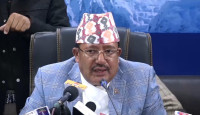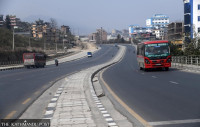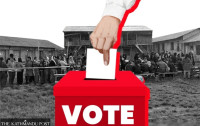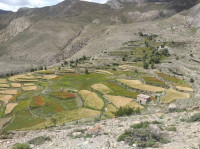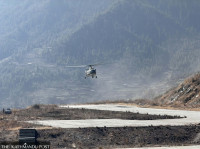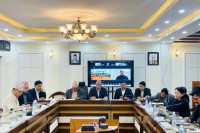National
Dutch envoy violates diplomatic etiquette
Vienna Convention says diplomats should not interfere in internal affairs of host nations.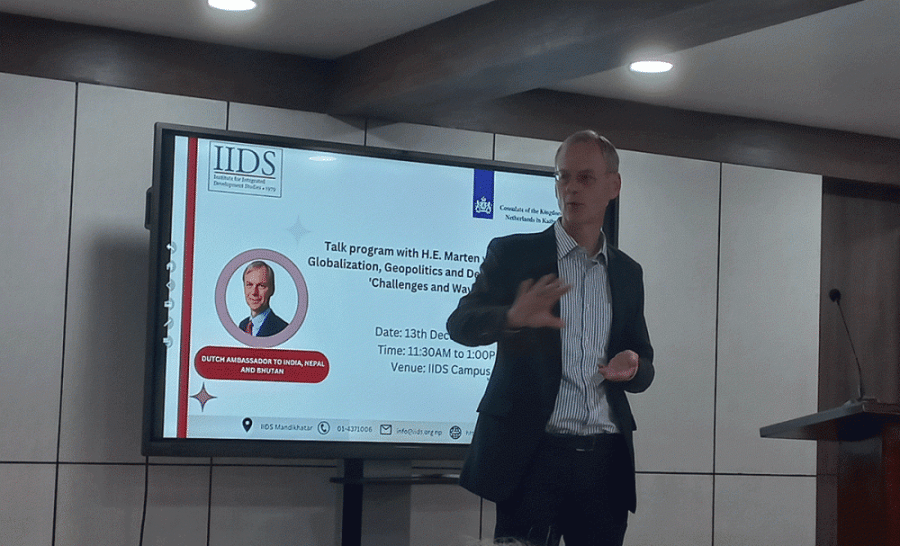
Purushottam Poudel
The non-resident ambassador of the Netherlands to Nepal, Marten Van den Berg, has breached diplomatic convention by suggesting how Nepal should conduct its foreign policy.
While addressing a discussion on “Globalisation, Geopolitics and Developing Countries, Challenges and Way Forward” organised by the Institute for Integrated Development Studies (IIDS) in Kathmandu on Tuesday, Berg remarked that given the geostrategic location of Nepal between India and China, it should conduct its foreign policy in a balanced manner. He further suggested that Nepal “should be careful while using Chinese money.” (The Post has obtained a voice record of the remark.)
Ambassador Berg brought up the issue of the Chinese-built Hambantota port in Sri Lanka, while suggesting how Nepal could conduct its foreign policy. “Sri Lanka had to lease the port to the Chinese because it was unable to pay off the debt it had taken from China to build the port on time. That raised concerns about its sovereignty.” He also said that the economic interdependence among countries is a “threat to sovereignty and the [cause of] inequitable distribution of capital and resources”.
The Vienna Convention on Diplomatic Relations, adopted in 1961 and which contains the guidelines to be followed when conducting diplomacy, forbids any nation's ambassador from commenting on the domestic politics of the host countries.
Article 41 (1) of the Vienna Convention on Diplomatic Relations states that “Without prejudice to their privileges and immunities, it is the duty of all persons enjoying privileges and immunities to respect the laws and regulations of the receiving state. They have a duty not to interfere in the internal affairs of that State.”
How Nepal should conduct its foreign policy is its internal matter. Non-interference in one another’s internal affairs is an underlying premise of Nepal's foreign policy.
High-ranking officials of the Ministry of Foreign Affairs thus say the advice of a foreign ambassador on how Nepal should conduct its foreign policy is unsuitable.
A senior official at the Ministry of Foreign Affairs termed the remarks of the non-resident ambassador of the Netherlands to Nepal as “absolutely unsolicited advice”.
Meanwhile, two former foreign ministers of Nepal termed the remarks made by Berg on how Nepal should conduct its foreign policy as untenable.
Former foreign minister Ramesh Nath Pandey said Berg’s remarks amounted to a gross disregard for diplomatic norms. “It’s a reconfirmation of Nepal losing its own political entity and becoming a boxing ring of external power centres.”
The Dutch non-resident ambassador’s remark is a value-loaded statement, said another former foreign minister Pradeep Gyawali. “Western countries are biased against China, which is also seen in the ambassador’s remarks,” Gyawali told the Post. “On the other hand, no ambassador can make a statement on a third country, it’s a breach of diplomatic etiquette. The government ought to take necessary steps to prevent such remarks.”
“Nepal has the experience of balancing its foreign policy with our neighbours, who are great powers. However, no diplomat of any friendly nation can suggest how we should be conducting our diplomacy. It's an undiplomatic suggestion,” Khadga KC, professor of International Relations and Diplomacy at the Tribhuvan University, told the Post.
Senior journalist Dhruba Hari Adhikary remarked that Dutch non-resident ambassador to Nepal bringing up the Sri Lankan case and comparing it to Nepal is unwelcome.
“China has not threatened Nepal’s sovereignty thus far,” Adhikary told the Post. “On the contrary, it has permanently pledged to help defend the sovereignty of Nepal, should it receive threats from elsewhere.”
It's not necessarily a bad thing when ambassadors from friendly nations provide constructive criticism. However, such “criticism or suggestion needs to be shared in confidence,” said a former ambassador of Nepal to the US who did not want to be identified. “Regardless of the Vienna Convention, no proud nation will accept any ambassador’s public comments on its internal or foreign affairs.”
In 2015, British ambassador to Nepal Andrew James Sparkes had to resign after he published a controversial article which suggested people’s right to religious conversion be protected by the constitution of Nepal. Nepal then was in the process of making a new constitution.




 19.66°C Kathmandu
19.66°C Kathmandu
